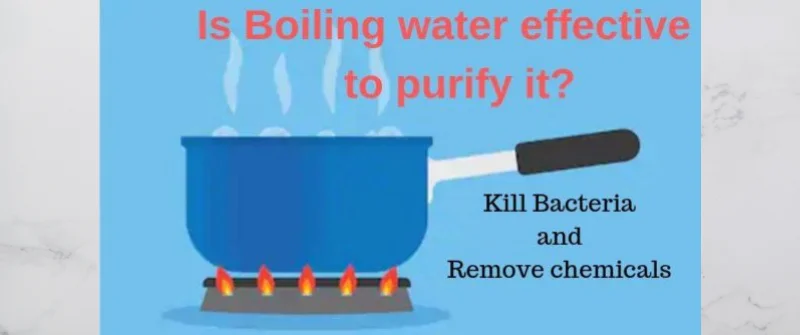Water is essential for survival. Sadly, water sources are one of the casualties of environmental degradation through water pollution. The seemingly clean water you see streaming from your tap down the stream is not always clean.
It may be full of unseen contaminants. One of the ways to purify water is through boiling. But how effective is it?
Boiling water is effective in purifying it by killing bacteria, pathogens, and organic impurities but does not remove chemicals like chlorine, fluorine, iron, magnesium, and lead. Thus, the efficacy of boiling water depends on the type of contaminants present. Since it does not eliminate all the contaminants, boiling water cannot guarantee it is safe for drinking.
To understand more about this, we seek to know if boiling water purifies it to make it safe for drinking. Does boiling water kill all the bacteria, weeds, and pathogens?
We must know if boiling water removes inorganic impurities like fluoride, lead, and iron. Here is a comprehensive examination of the effectiveness of boiling water for purification.
How Effective is Boiling Water to Kill Bacteria
Boiling water is one of the safest and most effective methods of purifying water for drinking. You do not need any sophisticated equipment or special skills to boil water. However, you do need to know precisely what it entails and how it works.
Contaminants Removed by Boiling Water
Boiling water is effective against most contaminants present in unpurified water. Most bacteria and viruses cannot survive the 1000C temperature of boiled water.
The most common organic contaminants in boiled water are protozoa, bacteria, and viruses. These are broad categories – the specific micro-organisms are diverse.
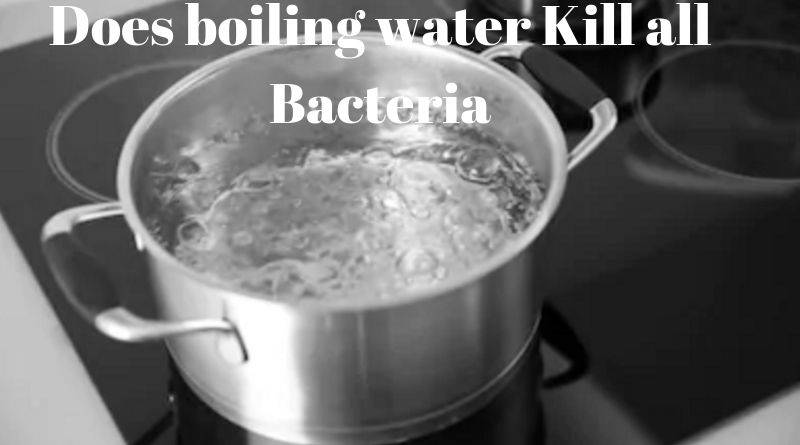
Most of these micro-organisms die when exposed to boiled water’s extreme heat.
Most organic contaminants will die when exposed to temperatures above 700C for about 10 minutes.
Boiling water is ineffective against most inorganic contaminants such as chemicals and inorganic particles. There have also been newly reported cases of new kinds of organic pollutants capable of surviving in boiled water.
What affects the Effectiveness of Boiling to Purify Water
There is only one method to boil water: heating it in a pot until it boils. However, you can boil water and still not get rid of all contaminants.
There are several factors to take into consideration, that do affect how effective boiling water will be towards its purification.
1. The Inorganic Contaminants in water
The type of contaminant is one of the factors to take into account. As mentioned, some contaminants are capable of surviving boiled water’s extreme temperatures.
As such, check for the presence of inorganic contaminants such as solid particles first.
If inorganic particles are present, you will need to filter the water before boiling it. You can do this using a standard coffee filter and other conventional filters.
However, you should improvise using unconventional filters such as clean clothes, paper towels, cotton wool, and anything other clean material capable of filtering water if you are outdoors.
Once all inorganic contaminants are filtered out, you can proceed to boil the water.
2. The Time the Water Boils
Time is one of the factors to take into consideration. You cannot put an exact figure on how long it takes to boil water because of the many factors affecting its boiling point.
The duration depends on factors such as the amount of water, heat temperature, and the presence of impurities. However, make sure that the water comes to a boil no matter how long it takes.
Water Boils in Four Stages:
Quivering
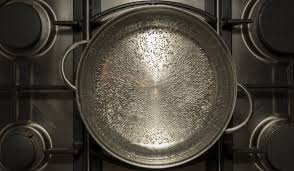
The first stage of boiling water is quivering. It happens when bubbles begin forming at the bottom of the pot.
However, the bubbles do not start rising to the top until the second stage.
The water’s surface also begins quivering slightly. The first stage is reached when the water reaches temperatures of about 60-700 C.
Sub-simmering
Sub-simmering is the second stage. It happens when the water rises to temperatures of about 75-900C.
When this happens, the little bubbles that began forming at the bottom start rising to the top in small streams. The water’s surface also starts quivering with more intensity, but the quivering is still subtle.
- Simmering
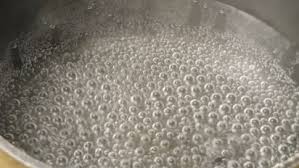
Simmering is the final stage that leads to full-blown boiling and rolling.
This happens when the water reaches temperatures of about 90-1000C.
The bubbles that initially began forming at the bottom of the top start getting bigger and streaming upwards faster.
Bubbles also start building at the sides of the pot. The water’s surface also begins quivering with much higher intensity.
- Boiling
You will know when the water starts boiling. The small bubbles of air that formed at the bottom of the pot erupt into big bubbles that continuously and vigorously rise to the top.
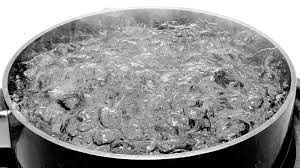
The water also begins quivering with greater intensity.
The quivering is so intense that it can displace the lid or sputter out of the pot, so be careful when handling it.
At this point, the boiling water also starts steaming – the steam is so hot that it can burn and blister your skin if you are not careful.
Boiling water reaches temperatures of 1000C. At this point, if you are advised to boil it long enough to kill bacteria and other pathogens
3. The Altitude Where you Boil Water At
Did you know that water boils quickly at high altitudes? It has something to do with atmospheric and vapor pressure.
The atmospheric pressure is lower at higher elevations, so it becomes easy for liquid to turn into gas.
This is a factor that you should take into consideration when boiling water outdoors at elevated heights – take note if you are a hiker or climber!
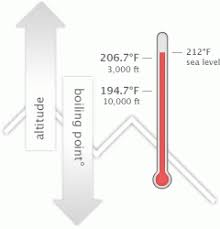
You will need to account for the time difference when boiling water at high altitudes.
Usually, you should let boiling water roll for about one minute to get rid of all the impurities.
At high altitudes, however, you will need to let the boiling water roll for about three minutes to account for the time difference.
If you are at extremely high altitudes, then you should let it roll on for a little longer.
As far as the effectiveness of boiling water for purification goes, these factors cannot be ignored. All your efforts will be for naught if you ignore these factors, and you will be exposing yourself to potential health risks.
Effects of Boiling Drinking Water
There is a good and bad side to everything. Boiling water is beneficial and even necessary in many cases.
However, as unbelievable as it may seem, boiled water also has its shortcomings. Here is an insight into the positive and negative aspects of drinking boiled water.
Effects of Boiling Drinking Water
The main advantage of drinking hot water is its purity. As mentioned, boiling water helps get rid of most of the unseen impurities.
This means that there will be a lesser likelihood of ingesting contaminants that may make you sick. Some contaminants are so toxic that they can lead to severe infections that can turn fatal.
It takes time for boiling water to cool down. At some point, it will go from hot to warm. There are several benefits of drinking hot and warm water:
- Hot water helps with detoxification by cleansing the body and gut of a wide range of toxins. Hot water also helps burn excess fats and calories in the belly. It will leave your body healthier and fitter.
- Hot water also helps to improve the body’s blood circulation. It does this by expanding blood vessels and relaxing muscles.
- Better circulation translates to better blood and energy flow to help you say active. This comes as a convenience if you are hiking, climbing, or engaging in any other physical activities.
- Drinking hot water also helps raise the body’s temperature. Considering that outdoor enthusiasts are advised to boil water before drinking, this comes as a convenience when camping out in the cold.
Disadvantages of Boiling Water to Purify
- In some cases, boiling water can change its taste. Ideally, water should be tasteless and odorless. Drinking
boiled water with any distinct taste may not feel as refreshing. - Unless you are a daredevil with a death wish, it is not prudent to drink boiling water straight from the pot.
You will need to give it some time to cool off. This would come as an
inconvenience if you were direly thirsty and needed a drink right away. This is
often the case for hikers and other outdoor enthusiasts in remote places. - Boiling water does not remove every impurity. Some microorganisms are capable of surviving boiled water’s
extreme temperatures. Boiling water is also ineffective against most chemicals
and inorganic toxins. - Boiling water may increase the toxicity of some of these contaminants. If you are not aware of such toxins in
your boiled water, drinking it can have adverse health effects that may result
in serious illnesses. - Boiling water turns some of it into steam and water vapor. This water vapor is lost in the air, and the
result is a reduction in the overall water quantity. This comes as an
inconvenience if you are outdoors in a remote place with limited water supply.
How Does Boiling Water Change Its Taste?
Some of the contaminants in unpurified water change its taste and odor. Boiling water may or may not change its taste depending on the types of contaminants present.
If there are chemicals present, boiling water will not change its taste. However, if the unpurified water did not have any distinct taste before boiling, you may note that it tends to taste somewhat ‘flat’ after boiling.
Water consists of oxygen and hydrogen. Air is dissolved in water in its original form. Once boiled, most of the dissolved air escape the water when the bubbles begin rising to the surface.
The result is a flat taste. To this end, many people claim that drinking boiled water does not feel as refreshing as drinking water in its original form.
However, there is a way to reverse this effect: aeration. To aerate boiled water, you should let it completely cool off first.
Once cool, you should pour the water back and forth several times between two cups in the open air. The cold water will dissolve some of the air around it and regain its original taste.
What Boiling Water does not Remove?
Hardy Bacteria, Parasites, and Chemicals. Well, this is when boiling water fails
As mentioned, boiling water will get rid of most organic contaminants. However, the effectiveness of boiling water for purification is not guaranteed as some hardy bacteria, parasites may be capable of surviving the boiling point of water.
Some parasites and bacteria are capable of surviving extreme temperatures. For instance, the Clostridium Botulinum is the bacterium that is not killed by boiling water. Fortunately, these are not commonly found in drinking water. However
Will Boiling Water Remove Chemicals?
Additionally, boiling water is ineffective against most of the chemicals commonly found in unpurified water. While boiling water is effective against most micro-organisms, it is not the case when it comes to inorganic substances and chemicals.
Chemicals that Boiling Water does not Remove
There are several ways in which chemicals make their way into drinking water. The biggest culprits are pollutants. For instance, industries often dump their waste in rivers and other water bodies, thus contaminating it with harmful chemical waste. Runaway water from farming land also contains chemicals such as nitrate, which is a common ingredient in fertilizers.
Environmental pollution is not always to blame as natural underground deposits of chemicals such as mercury may also contaminate wells and other water sources. The most common chemicals found in drinking water are lead and nitrates.
Nitrates
Nitrates are especially harmful to infants and young children. Once ingested, nitrates are converted to nitrites. Nitrites have been shown to inhibit blood’s ability to transport oxygen. This can cause severe illnesses and even result in death if left untreated.
Lead
Lead is also toxic. It has been shown to inhibit physical and mental development in infants and young children. It also causes chronic illnesses such as diabetes, kidney failure, and high blood pressure in adults when ingested in large quantities over prolonged periods.
Lead is by far the most common chemical in drinking water. It mostly comes from the lead pipes used to channel tap water into homes.
An excellent example of a problem of lead in water is exhibited in the Flint water crisis in Michigan. Residents of Flint have been facing a water crisis since 2014, and they have to use boiled water for all their domestic needs, including bathing.
Does Boiling Water Kill Minerals or Concentrate Them?
As mentioned, some water is lost through evaporation during boiling. Considering that chemicals do not evaporate during boiling, their quantity remains at the same levels while the amount of water decreases.
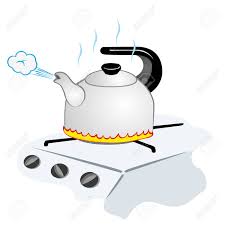
The result is an increase in the overall concentration of these chemicals. As such, boiling the water only makes the situation worse in such instances. At the same time, boiling water does not kill minerals or even remove them.
Heat can also be a catalyst for some chemicals. It can lead to a transformation that can make the chemicals more toxic. Water boils at 100 degrees Celsius, which is enough to transform mildly harmful chemicals into overtly toxic ones.
Unfortunately, it is impossible to tell which types of chemicals are present in contaminated water without a test. People in remote areas are at a disadvantage in this case as they do not have access to testing services and facilities.
Also Read: 12 Pantry Moth Traps, Killers, Sprays & Repellents that work
Alternatives
to Boiling as a Water Purification Methods
The effectiveness of boiling water for purification is not always guaranteed. Fortunately, there are other methods that are much more effective against chemicals and micro-organisms capable of withstanding extreme temperatures:
Distillation vs Boiling Water
Distillation is way better and effective than boiling water since it removes more impurities, while the latter is ineffective against most chemical contaminants in drinking water.
However, taking it one step further can help rid your drinking water on a wide range of these chemicals, including lead, mercury, arsenic, and nitrates.
Distillation may sound complicated, especially for outdoor enthusiasts looking to boil and distill water on the go. However, you do not need any fancy equipment to distill water. All you need is a source of fire and two containers: a boiling pot and a smaller container such as a glass container or water bottle.
Boiling water vs Filtration: Which is better?
Filtration is one of the more effective methods of water purification than boiling if it combines both the physical and chemical methods of filtering. While it is not the best, it has better results compared to boiling.
It is for this reason that filtration is used on a large scale by industries and public service providers. Your tap water undergoes filtration before being channeled to your taps.
Filtration does not get rid of all of the minerals and salts present in the water. As such, this method is considered healthier compared to other purification methods. Learn more about filtration on our guide to water purification and discover the pros and cons of this method.
Boiling water vs Chlorination: Which is better?
Chlorine is a popular water purification chemical that has been in use for decades. It is often used to treat ground and tap water. In most cases, the water that flows from your taps contains mild traces of chlorine. It is effective for killing all types of organic contaminants.
It is important to note that chlorine may have adverse health effects on people suffering from certain conditions, such as thyroid complications. As such, it is important to dechlorinate water as a further purification method.
Therefore, boiling water is better than chlorination due to its effectiveness in killing organic impurities and also the health implications of chlorine.
Also Read: Best Freestanding Kitchen Sinks with Cabinet: single or double
Final Word
Water is life. Therefore, it is important to purify water because it can also induce health complications if it is contaminated. Considering that there has been a rise in cases of runaway water pollution, it is prudent to take extra precautionary measures to ensure that your drinking water is clean.
Boiling is one of the simplest and most effective water purification methods. The effectiveness of boiling water for purification has been tested and proven time after time.

I am a homeowner excited by various innovative products and solutions that make life better. I am happy to share such ideas and reviews of home and related products.
